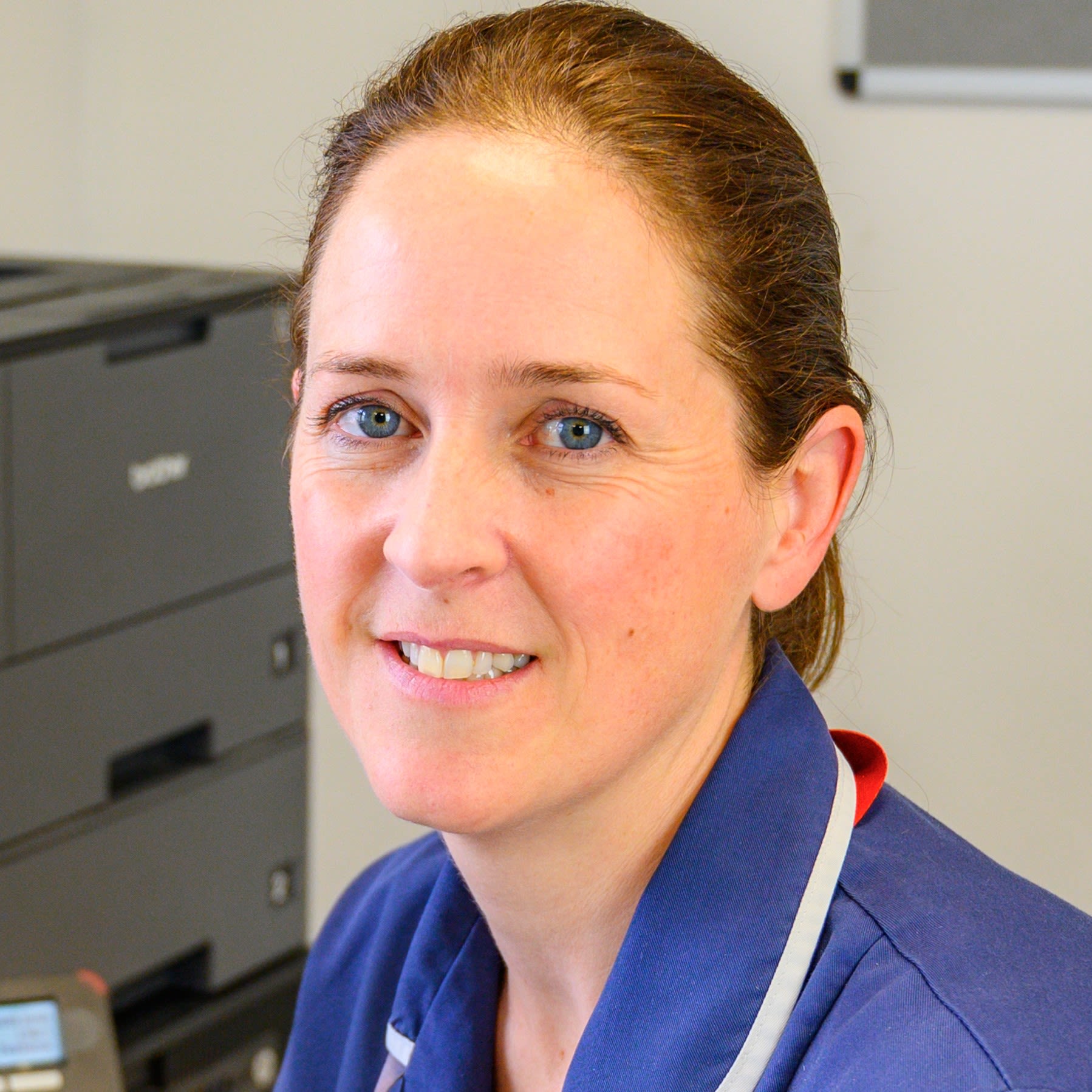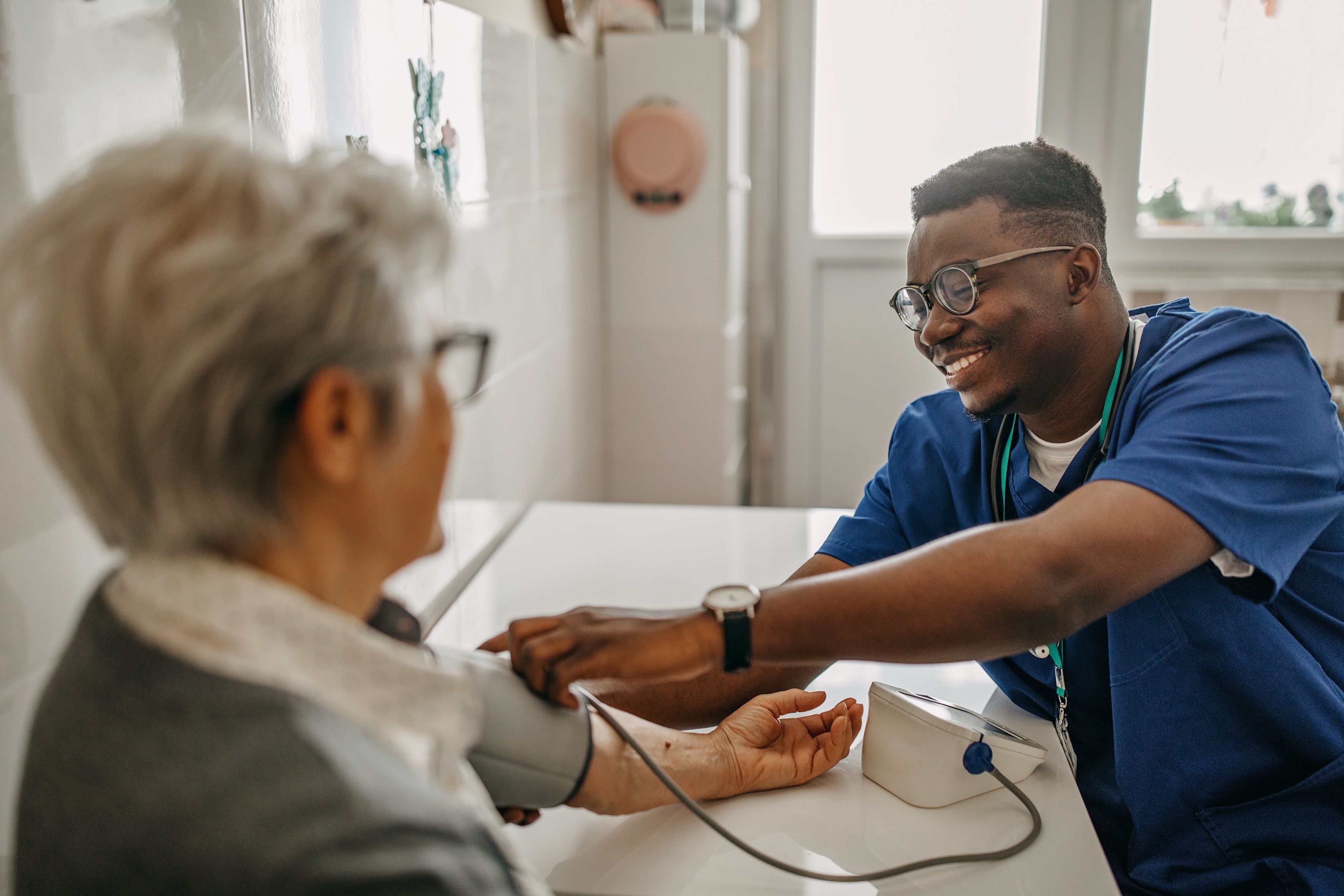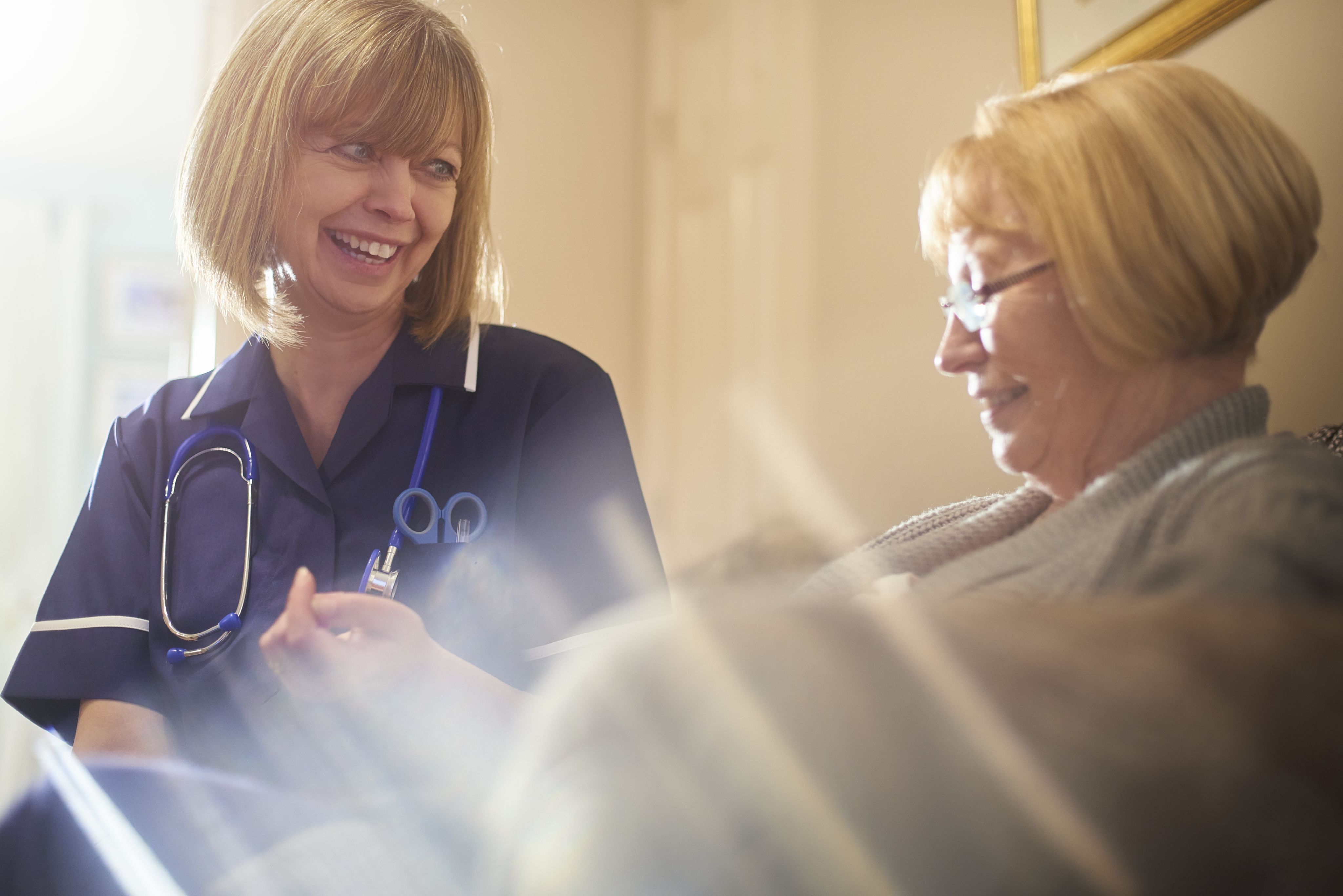Becoming part of the change process
A committee member’s story

Health and care professionals from a wide range of backgrounds work with NICE to develop our products. Sitting on our independent committees, they help to develop our guidance, quality standards and indicators. It is only by listening to their unique perspective that we can create advice that is useful and useable, making a real difference to patient care.
Liz Cross is an advanced nurse practitioner at a GP practice in Hertfordshire. Liz outlines her experience of sitting on our indicator advisory committee.
"As a ‘shop floor’ nurse, I recognised I had a voice and I wanted people further up the ladder to hear it."

Tell us about your committee
I sit on NICE’s indicator advisory committee. We develop measurable and achievable performance indicators suitable for inclusion in the Quality and Outcomes Framework (QOF). The QOF is a voluntary annual reward and incentive programme for all GP practices in England. NICE indicators can also be used for other national or local quality improvement initiatives.
What 3 words would you use to describe your committee member role?
Refreshing, energising and inspiring.
What motivated you to apply?
I wanted to learn how top-level decisions are made. In frontline healthcare, you often feel that things are being done to you. I’d reached a point in my career where I could either carry on having things done to me or I could become part of the change process. As a ‘shop floor’ nurse, I recognised I had a voice and I wanted people further up the ladder to hear it.


Liz enjoys developing realistic and achievable indictors that everyone working in the NHS can understand.
Liz enjoys developing realistic and achievable indictors that everyone working in the NHS can understand.
What do you like most about your committee member role?
I like the problem-solving aspect. I enjoy looking at the latest research and thinking about what is realistic and achievable for GP practices up and down the country. How do we translate this into something that is easy enough for everyone working in the NHS to understand?
What surprised you?
How exciting it is. Every single person on our committee is passionate about making a difference. We often hear from guest speakers who are full of enthusiasm about their work and improving patient care. Everyone is working together with the same goal in mind.
What have you learnt?
The importance of consistency. The indicator has to correspond to the guidance; the guidance has to marry up with the underpinning research. NICE’s reputation depends on this rigorous evidence-based approach.
How has your input influenced the indicators being developed?
When our committee was considering an indicator on alcohol use, we were discussing the feasibility of asking patients how much and how often they drink. This is important to ensure that those who need help are not missed. Members of the committee raised concerns that this type of discussion may not always be appropriate during a GP appointment. I encouraged the committee to think about the wider practice team and how they could be utilised. Recent changes in general practice mean that a broad range of professionals now have the opportunity to have conversations with patients about their alcohol use.

Have there been any challenges?
Preparing for the meetings and reading the paperwork is a labour of love. But to prevent your job from becoming stale, it’s important to learn and develop. Being on the committee gives me a sense of empowerment that keeps me motivated.
What advice would you give to other health and care staff who are considering getting involved in NICE’s work?
100 percent do it! Be bold. You work front and centre with the patient. Your voice is valid. We need your profession represented when making national changes for the future NHS.
